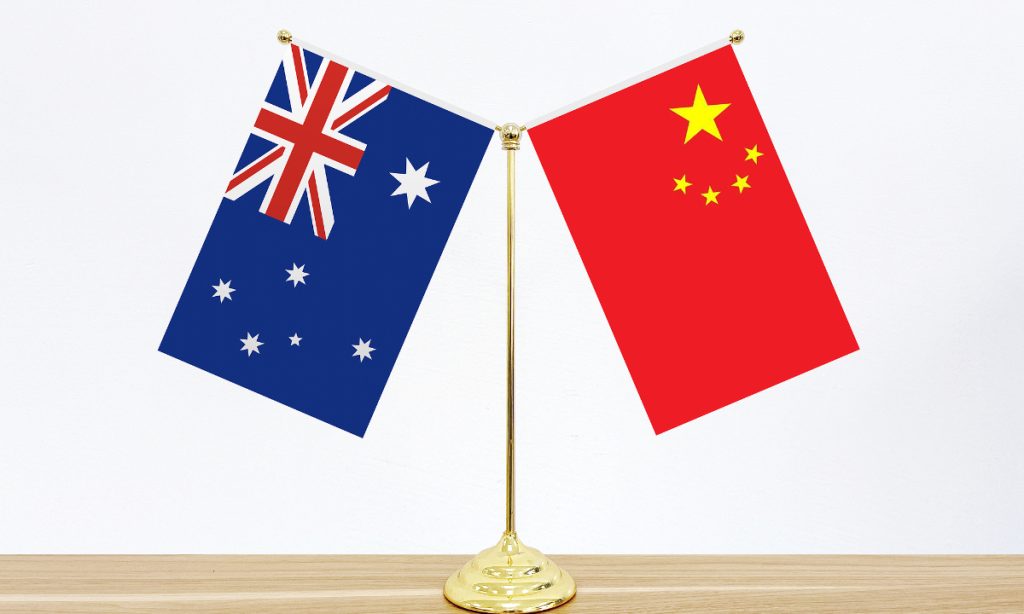Australian PM to visit China; interaction important amid global uncertainties: expert

Australian Prime Minister Anthony Albanese will pay an official visit to China, which an expert said reflects Australia's effort to seek and shape a sense of certainty aligned with its national interests amid increasing global uncertainties to the international order and security, while the two sides still have more areas open for bilateral cooperation to spur regional free trade growth.
At the invitation of Premier of the State Council Li Qiang, Albanese will pay an official visit to China from July 12 to 18, according to Chinese Foreign Ministry.
When asked to introduce the background to Albanese's visit to China and China's expectation for the visit, Chinese Foreign Ministry spokesperson Mao Ning said on Tuesday that this visit is taking place just as the China-Australia comprehensive strategic partnership enters its second decade. Under the guidance of the leaders and the joint efforts of the two countries, China-Australia relations have continued to improve and grow.
China hopes that through this visit, the two sides will strengthen communication, enhance mutual trust, expand practical cooperation and further advance the comprehensive strategic partnership, Mao added.
This will be Albanese's second visit to China as prime minister, following his visit in November 2023, according to a media release from the official website of Australian Prime Minister on Tuesday.
The visit, shortly after Albanese's re-election in May this year, is not merely a reciprocal visit following Premier Li's trip to Australia last year but also underscores the high priority Albanese places on China-Australian relations, Chen Hong, a professor and director of the Australian Studies Center at East China Normal University, told the Global Times on Tuesday.
Amid increasing global uncertainties to international order and security, Australia aims to seek and shape a sense of certainty that aligns with its national interests, and it is in this context that Australia has turned its attention to China, the expert said.
The expert highlighted that Albanese's visit, which is longer than the usual two or three days, is expected to play an important role in regional stability and development, including upholding multilateralism and free trade. It also carries special significance as the start of the second decade of the China-Australia comprehensive strategic partnership.
Albanese told reporters in Hobart that he is looking forward to going to Shanghai, Beijing and Chengdu [in Southwest China's Sichuan Province], according to Reuters. Leaders will exchange views on global and regional issues as well as bilateral cooperation in areas including trade and tourism, according to the media release from Prime Minister official website.
Chen noted that Shanghai is a key hub for China-Australia economic, financial, and service ties, while his planned stop in Chengdu signals a broader, more substantive approach toward China, reflecting a comprehensive and forward-looking vision to deepen bilateral relations beyond symbolic gestures.
China remains Australia's largest trading partner, accounting for almost one-third of its total trade, and will remain so for the foreseeable future, Albanese said, according to the media release. "We will continue to patiently and deliberately work toward a stable relationship with China, with dialogue at its core," he added.
Economic and trade ties have always been not only a cornerstone but also a booster of China-Australia relations, the expert said. Traditional trade will be further consolidated and upgraded, including China's high-quality, competitively priced manufactured goods, such as electric vehicles and household appliances, alongside Australia's energy, mineral and agricultural exports to China. At the same time, under the new economic landscape, bilateral cooperation can expand into emerging areas like the green economy, the expert noted.
More areas remain open for bilateral cooperation, Chen added, which can in turn spur regional free-trade growth.
Tourism has also been a vital area of China-Australia cooperation, especially after China's visa-free policy included Australia, which has brought more Australian visitors to China. Such people-to-people interaction also fosters mutual understanding and is particularly important for bilateral ties, Chen said.
Chinese Ambassador to Australia Xiao Qian published an article in the opinion section of The Australian Financial Review on Monday, which said the two sides should strengthen high-level guidance and consolidate institutional dialogue and exchanges, expand practical cooperation across all fields, deepen people-to-people exchanges and sub-national ties, and advance cooperation on international and regional affairs.
China stands ready to work with Australia to strengthen high-level guidance, enhance political mutual trust, properly manage differences, focus on common interests and promote greater development of the China-Australia Comprehensive Strategic Partnership, the ambassador said.